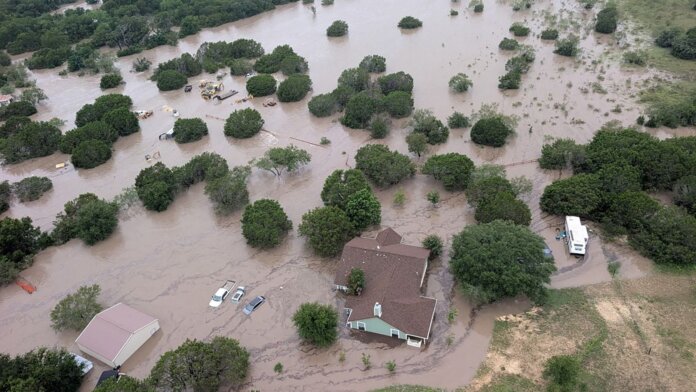Texas is no foreigner to extreme rainfall, but flash cataracts remain one of the most dangerous and undervalued natural disasters in the state. From the Hill Country to Houston, torrential rains and overwhelmed drainage systems have caused major dislocations across communities. In this blog, we cover everything you need to know about Texas flooding, why flash cataracts are so deadly, how to prepare, and the rearmost exigency updates.
🌧️ What Is a Flash Flood?
A flash flood tide is a rapid-fire and violent flooding event that occurs within six hours of heavy downfall or unforeseen water release, like a levee break. Unlike slow- rising swash cataracts, flash cataracts strike snappily and frequently without warning. In Texas, flash cataracts are especially dangerous because of the state’s complex soil, hilly terrains in Central Texas, and civic sprawl that limits natural drainage.
📍 Why Is Texas So Prone to Flash cataracts?
Several factors make Texas a hotspot for flash cataracts
- Extreme Weather Patterns Texas is constantly hit by severe showers, hurricanes, and tropical storms that bring heavy rains.
- Urban Development Concrete-heavy metropolises like Houston and Dallas have poor water runoff systems.
- The Texas Hill Country is known as “ Flash Flood Alley ” due to its steep pitches and thin soil layers.
Swash and Bayou Systems Overflowing gutters, creeks, and feeders can snappily submerge near areas.
📅 Recent Flooding Events in Texas( 2025 Update)
As of July 2025, several areas in Texas including Austin, San Antonio, and the corridor of North Texas have been impacted by flash flooding due to back- to- back storm systems. Original authorities have issued flood tide warnings and evacuation orders in multiple counties.
Exigency Alerts
- Austin- Travis County Flood advising through July 7.
- Houston Metro Bayous nearing capacity; localized road flooding reported.
- Dallas- Fort Worth Over 5 elevation of rain in 24 hours; major road closures.
🧭 What To Do During a Flash Flood
- Move to Higher Ground incontinently
- Never Drive Through Flood Waters – “ Turn Around, Do n’t Drown ”
- Hear to NOAA Weather Radio or Local News
- Avoid Aqueducts, Creeks, and Low- lying Areas
- Prepare an exigency tackle with food, water, flashlight, specifics, and power banks.
✅ How to Prepare for Flooding in Texas
- Check flood tide charts to know if your home is in a flood tide-prone area.
- Install sump pumps and flood tide reflections in basements or ground bottoms. subscribe up for exigency cautions like Warn Central Texas or Ready Harris.
- Buy flood tide insurance — regular homeowner’s insurance does n’t cover cataracts.
- Keep important documents in leakproof holders or pall storehouses.
📋 FAQs About Texas Flooding and Flash cataracts
🌀 Is flash submerging the same as regular flooding?
No. Flash flooding happens veritably snappily — in hours of rain — while regular cataracts may take days to develop. Flash cataracts are generally more dangerous due to their unforeseen nature.
🚗 Why is it dangerous to drive through floodwaters?
As little as six elevations of moving water can knock you off your bases, and one bottom of water can sweep a vehicle down. numerous flood tide- related deaths do in vehicles.
🏡 How can I cover my home from flash cataracts?
Install walls or sandbags if cataracts are imminent. Raise electrical systems above flood tide position. Keep gutters and drains clean.
📲 What apps can warn me to flash cataracts in my area?
FEMA App Red Cross Emergency App NOAA Weather Radar Live Texas Weather App by TWC
💧 Can flash flooding affect drinking water?
Yes. Floodwaters can pollute original water inventories with sewage or chemicals. Always boil water or use bottled water if there’s an impurity alert.
💰 Does FEMA help Texas residers after flooding?
Residents can apply for FEMA aid, including temporary casing and property damage backing, If a civil disaster protestation is issued.
🔚 Final studies
Flash cataracts are presto, violent, and enduring but with the right information and medication, Texans can cover their families and property. As climate change continues to bring further changeable storms, staying alert is more important than ever. Keep an eye on rainfall cautions, prepare in advance, and partake this companion to help others stay safe.



